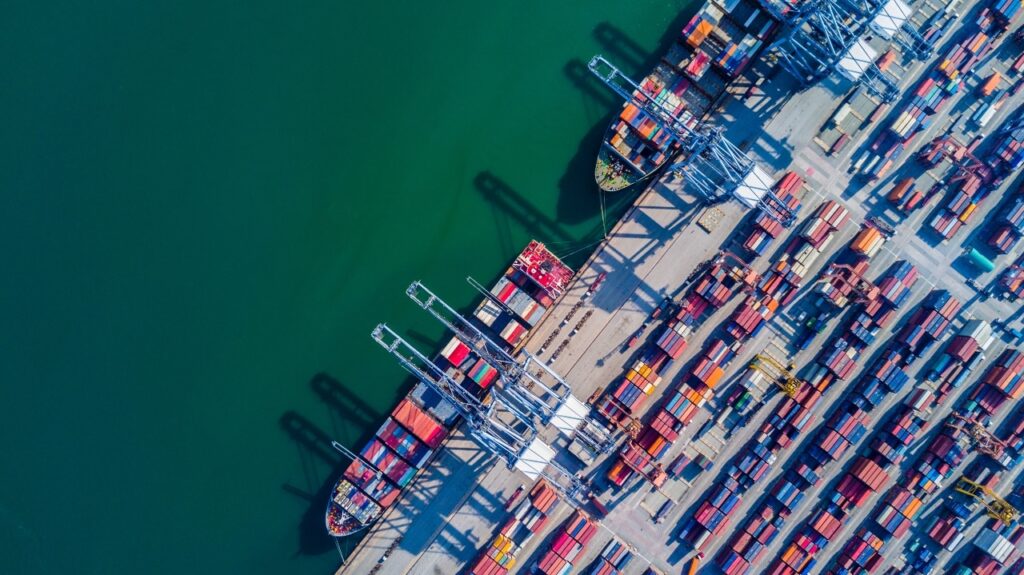In this article, Miguel Angel Bustamante Morales discusses the key differences between the Incoterms®2020 rules, FCA and FOB. Miguel is an ICC certified trainer on the Incoterms® 2020 Rules and an active participant in the last three revisions of the Incoterms® Rules: 2000, 2010, and 2020. The views and opinions expressed in this article are those of our authors and do not necessarily reflect the official policy or position of the ICC Academy or ICC.
Incoterms® Rules
The Incoterms® rules are a set of trade rules created by the ICC in 1936. The rules are periodically reviewed and revised, with the most recent version being Incoterms® 2020.
They provide to sellers and buyers or exporters and importers, international standardised trade terms that clearly define, important and relevant matters in a B2B sale of goods contract, such as the place of delivery of the goods and the transfer of risks for loss of or damage of the goods from the seller to the buyer.
Each of the eleven Incoterms® rules also provides clarity on:
- The costs that the seller and the buyer must assume
- Who, between seller and buyer, must contract for the transportation of the goods, including the security requirements for their transportation
- In some cases (CIP and CIF), responsibility for insurance coverage for the goods
- Who is responsible for completing export and import formalities
- Responsibility for packing, packaging, marking and the certifications of quality or weight of the goods
In this article, we will focus on just two of the rules; FCA and FOB. We will discuss their similarities and differences, including when each of them should be used.
FCA and FOB
Seller and buyers may be uncertain whether to use FCA or FOB for their trade transaction. When you compare the two terms, they share some similarities. Both terms:
- Place the obligation on the seller to deliver the goods to the carrier designated by the buyer.
- Require the seller to carry out export formalities.
- Make the buyer responsible for taking delivery, risks and costs from the moment the seller has delivered the goods to the carrier (nominated by the buyer).
So, if both FCA and FOB have common characteristics, how do you know when it is appropriate to use one or the other?
Read the article: Incoterms® 2020 vs 2010: What’s changed?
Understanding FCA (Free Carrier)
Under FCA, the seller delivers and transfers the risks for loss of or damage of the goods to the buyer at the agreed location, once the goods are delivered to the carrier or to the designated person by the buyer. The agreed place of delivery under FCA could be the seller’s premises, in which case the seller fulfills their obligation once the goods are loaded onto the collecting vehicle.
If another delivery point is agreed upon, such as an airport cargo terminal, a train cargo terminal, or a container terminal at the port of shipment, the seller complies by delivering the goods to the carrier or the buyer’s designated person, ready for unloading. Regardless of the delivery scenario, the seller is responsible for completing the export formalities.
Basic obligations of the buyer and seller under FCA
(1) The parties may agree on one of two delivery and risk transfer points: the seller’s premises or another designated place.
(2) FCA is suitable for any mode of transportation, including multimodal shipments involving two or more different modes of transportation.
(3) As multimodal shipments, particularly for container transport, are increasingly common, FCA is well-suited for this practice.
(4) The seller may deliver and transfer the risk at their premises (i.e. warehouse, factory, shop) after loading the goods onto the buyer’s collecting vehicle, or at another agreed location (i.e. airport, train station, or port), where the goods are ready to be unloaded from the transport.
(5) In either case, the seller is responsible for export clearance and ensuring compliance with security requirements for the goods’ transport.
When do you use FCA?
- When the seller commits to deliver the goods at their premises, including export clearance, and the buyer accepts this arrangement, making all necessary arrangements to receive the goods at seller’s facilities.
- When the buyer is responsible for handling all transport logistics and the goods are to be transported using multiple modes of transportation or the combination of at least two modes, such as truck or train, followed by a vessel, and, possibly again truck and train, to bring the goods to the destination/buyer’s location.
- When the seller commits to deliver the goods to the carrier designated by the buyer at a train station, airport or sea port of departure, without loading the goods onto the vessel, the aircraft or train. The seller fulfils their obligation once the goods are delivered to the carrier hired by the buyer at the agreed location, ready for unloading from the seller’s arriving vehicle.
Understanding FOB (Free on Board)
FOB means the seller delivers and transfers the risk of loss or damage to the buyer once the goods are loaded onto the vessel at the named port of shipment. The seller is responsible for completing the export formalities.
Basic obligations of the buyer and seller under FOB
(1) The place of delivery and the point where the transfer of risk occurs is at the agreed port of shipment, once the goods are loaded on board the vessel.
(2) FOB is to be used only for maritime or inland waterway transportation, meaning port-to-port shipments.
(3) FOB is one of the oldest terms, originating in the early 1800s when ocean shipments were the primary for international trade and, containers did not yet exist.
(4) Seller and buyer should be aware: if the seller has the goods ready at the port of shipment, on the agreed date or period, but the buyer fails to provide timely notice of the vessel’s name, the specific loading point, or if the vessel arrives late or closes for cargo earlier, the buyer assumes all risks and costs, even if the goods have not been loaded on board.
(5) The seller is responsible for completing the export clearance at the port of shipment and complying with the security requirements for sea transport.
When do you use FOB?
- When both the seller and buyer understand that FOB is only applicable for maritime or inland waterway transportation, meaning a port-to-port shipment.
- When the seller commits to delivering the goods on board the vessel at the agreed port of shipment, with export formalities completed.
- When the buyer is responsible for contracting and paying the carrier for the port-to-port shipment.
- When both parties agree that the transfer of risks and costs occurs at the agreed port of shipment, except as outlined in articles B3 and B9.
Comparative analysis of FCA and FOB
In both Incoterms® rules, the commercial invoice will only cover the cost of goods and any export clearance and documentation costs (if applicable). The key difference between FCA and FOB lies the place of delivery and the required modes of transport for each term.
Use cases
FCA is the appropriate rule when goods are transported in containers or pallets and multiple modes of transportation are used.
For example, the seller is in Zhengzhou China, and the buyer is in Kansas City, USA. The goods are toys. The parties agree to a contract of sale as follows: FCA Seller’s factory, Zhengzhou China, Incoterms® 2020.
- The seller delivers the goods at their premises within the agreed timeframe, with export clearance completed. At that moment, the seller transfers the risks and costs to the buyer.
- The buyer’s contracted carrier picks up the goods (loaded in a container) and transports them by road to the port of Shanghai. The goods are then shipped by sea from Shanghai to Long Beach, California.
- After import clearance in Long Beach, the container is transported by train to Kansas City.
Although multiple transportation modes were used, a single Multimodal Bill of Lading covered the entire journey, with the buyer bearing all transportation costs.
FOB is the appropriate rule when goods are transported in bulk between ports using maritime or inland waterway transportation.
For example: The seller is in Mexico and the buyer is in China. The goods are 100,000 MT of iron ore and the parties sign a contract of sale as follows: FOB Lazaro Cardenas Port Mexico, Incoterms® 2020.
- The seller delivers the goods by loading the 100,000 MT of iron ore onto the vessel at the agreed port of shipment (Lazaro Cardenas) within the agreed timeframe, with export clearance completed. At this point, the seller transfers the risks and costs to the buyer.
- The buyer’s contracted oceanic carrier transports the goods to the port of Qingdao China, completing a port-to-port shipment. The buyer handles the import clearance in Qingdao.
- In this case, a Marine/Ocean Bill of Lading is issued by the carrier hired and paid for by the buyer.
Choosing the right Incoterms® rule
There is no ‘right or wrong” Incoterms® rule’, but rather the appropriate Incoterm® rule. This applies to every term.
How do you choose the appropriate Incoterms® rule? We’ve provided brief highlights on FCA and FOB, but there’s much more to learn. The ICC Academy offers courses and certifications led by certified trade experts, providing comprehensive information, including up-to-date case studies. These courses are fully aligned with the Incoterms® 2020 rules, as outlined in ICC Publication 723.
Interested in learning more?
Read our other articles on the Incoterms® Rules here.




